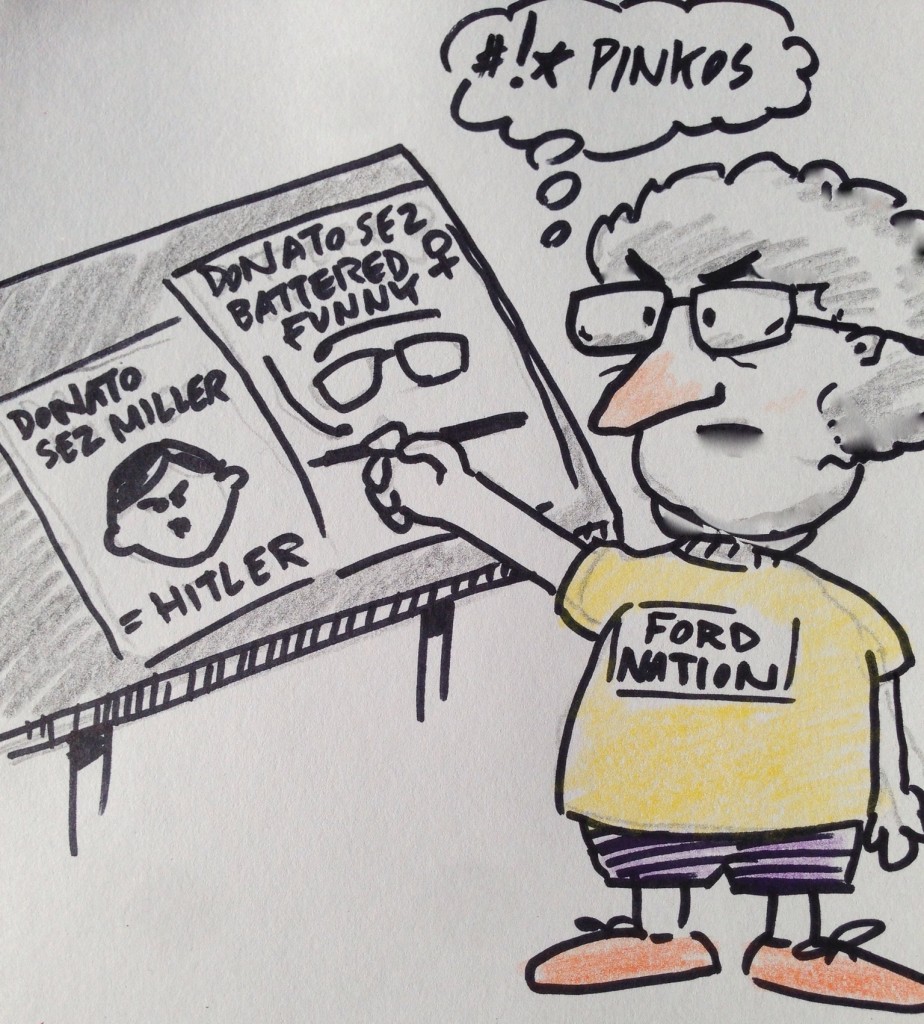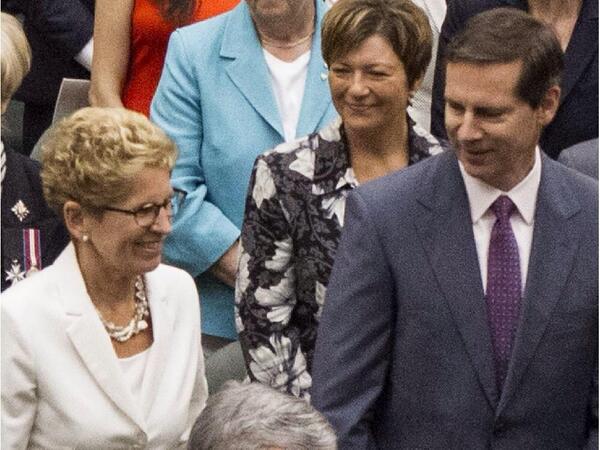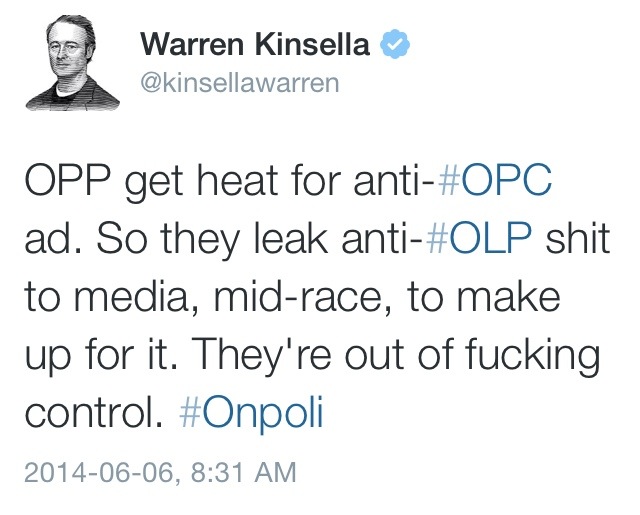The first duty of intelligent people, said George Orwell, is to restate the obvious.
In politics, it isn’t done nearly enough. So, let us state the obvious: Kathleen Wynne won a huge, impressive, astounding victory. But she didn’t win so much as Tim Hudak lost.
Political reality (an oxymoron if there ever was one) is usually right out there in the open. You don’t have to go looking for it.
Now, sure: the tendency of the commentariat – the pollsters, the pundits, the progonosticators – is to pore through columns of data and election entrails, and ascribe some murky cause to unambiguous events. But those in the punditocracy who got Ontario election 2014 decidedly wrong (and I was decidedly one, for again believing the pollsters), just need to pay closer attention to what is obvious. The big picture stuff.
The big picture stuff: poll after poll after poll, discredited as they so often are, showed the Ontario Liberal leader to be the most popular political leader around. And those selfsame polls showed the Ontario Progressive Conservative leader to be the least popular. It never really changed.
It certainly didn’t change when the interminable election campaign got going: it got more pronounced. Ontario voters weren’t at all happy about serial Liberal controversies, of course. But they liked Kathleen Wynne – female, gay, inheritor of said controversies – and her economic ideas didn’t worry them overmuch.
Tim Hudak, meanwhile, did. They thought his economic plan – creating a million jobs, while simultaneously cutting 100, 000 jobs, and then confusing “person years” with “jobs” – was just too radical. It didn’t make sense to them. And, in the equivalency in media coverage that an election campaign gives to opposition leaders, Hudak came up short.
There was something in his alchemy – something in his essence, his DNA – that voters just didn’t like. They never warmed to him, not once.
Sure, Hudak won the single leader’s debate. Sure, he won more newspaper endorsements than Wynne. Sure, the pollsters were saying that he was the main beneficiary of a historically-high desire for change.
But they didn’t warm to him. Wynne, they did. So, when Hudak and his uncommonly insensible revolutionaries branded everything they did with Hudak’s face, they were courting disaster. And disaster they got.
By placing an unpopular leader with an unpopular plan front and centre – by being more radical than Stephen Harper has ever, ever been on the hustings – Hudak’s party created the ideal circumstances for Kathleen Wynne to win big.
It’s that obvious.
Take a look at some of the numbers, if all that sounds too simplistic. Wynne won eight more seats than Dalton McGuinty did in 2011 – but she did so with almost exactly the same popular vote, 38 per cent. That is, she and McGuinty both won 38 per cent of a shrinking pool of votes – but she got a majority, and he didn’t.
Why?
Because the PC vote collapsed, that’s why. They captured about 36 per cent of the popular vote in 2011. On Thursday night, they got 31 per cent. That drop, alone, accounted for Wynne’s big win. That, alone – unpopular PC leader, unpopular PC economic plan – allowed the Ontario Liberals to do better than many folks ever expected they would.
Now, in political campaigns, it’s never one thing that determines outcomes, of course.
Other factors contributed to Wynne’s win, and Hudak’s loss. Among them: Wynne’s war room – led by Bob Lopinski, Brian Clow, Rebecca Mackenzie and Fahim Kaderdina – were better than their PC and NDP equivalents. Her lead campaign strategists – David Herle, Peter Donolo, Pat Sorbara, Tom Teahen and Andrew Bevan – kept a laser-like focus on the obvious realities: Wynne and her plan popular, Hudak and his plan unpopular.
(And, yes, Virginia, this writer did indeed write that sentence. Clip and save.)
Joe and Jane Frontporch, in their wisdom, always had the same perspective: they didn’t like Tim Hudak. So, when Hudak turned the election into a referendum on himself, Joe and Jane voted accordingly.
It all may sound simple, and it may be restating the obvious: but after the shambolic mess that was Ontario election 2014, it is – as no less than Orwell said – our first duty, right?
Right.
,
Comments (53)




